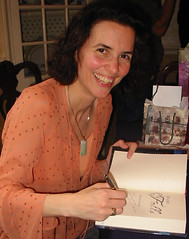So what? You’re writing away in your cubbyhole, deaf to the distractions of the blogosphere. (In which case, what are you doing here?) You say to yourself: Tempest in a teapot, and why should I care, anyway?
If your goal is publication, you should care plenty.
Why? Because in your quest for publication, most likely you’ll be seeking representation by a literary agent. A GOOD lit agent can and will do all these things:
- Help you polish your work, so that it is in best possible shape prior to submission to editors;
- Formulate and carry out a submission strategy to these editors, using her extensive contacts and the relationships she’s built in the publishing world;
- Negotiate the best possible publishing deal for you and your work (this goes beyond the bare question of advance money; this also includes which rights and subrights the publisher gets, the royalties you will receive, and a host of other details—most of which you’ve never heard of, but which can make a huge difference in your publishing experience);
- Mediate any problems which arise between you and your publisher, from bad cover art to book promotion snafus;
- Give you oodles of advice and encouragement, to help you shape your long-term writing career.
So what’s the problem? There are no degree certificates for literary agents, no government regulation, no exams to pass, no licenses to acquire. I could slap together a webpage today, order some business cards saying “Dog-Eat-Dog Literary Agency”, and voila! I’m a literary agent. (Perish the thought—I would be terrible). Many writers, many of whom have invested years in their novels, don’t bother to take the time to learn what separates the good agents from the bad. Bad agents know this. Operating under the time-honored truism that there’s one born every minute, these scam artists go a-hunting. And they catch plenty, with the result that the agent ends up richer, yet another writer ends up poorer (and bitter, to boot), and the book is no nearer publication than it was before.
Over the next week or three, I’ll post some more about agents: how to recognize the bad ones, how to find the good ones, and how to get the agent of your dreams.





